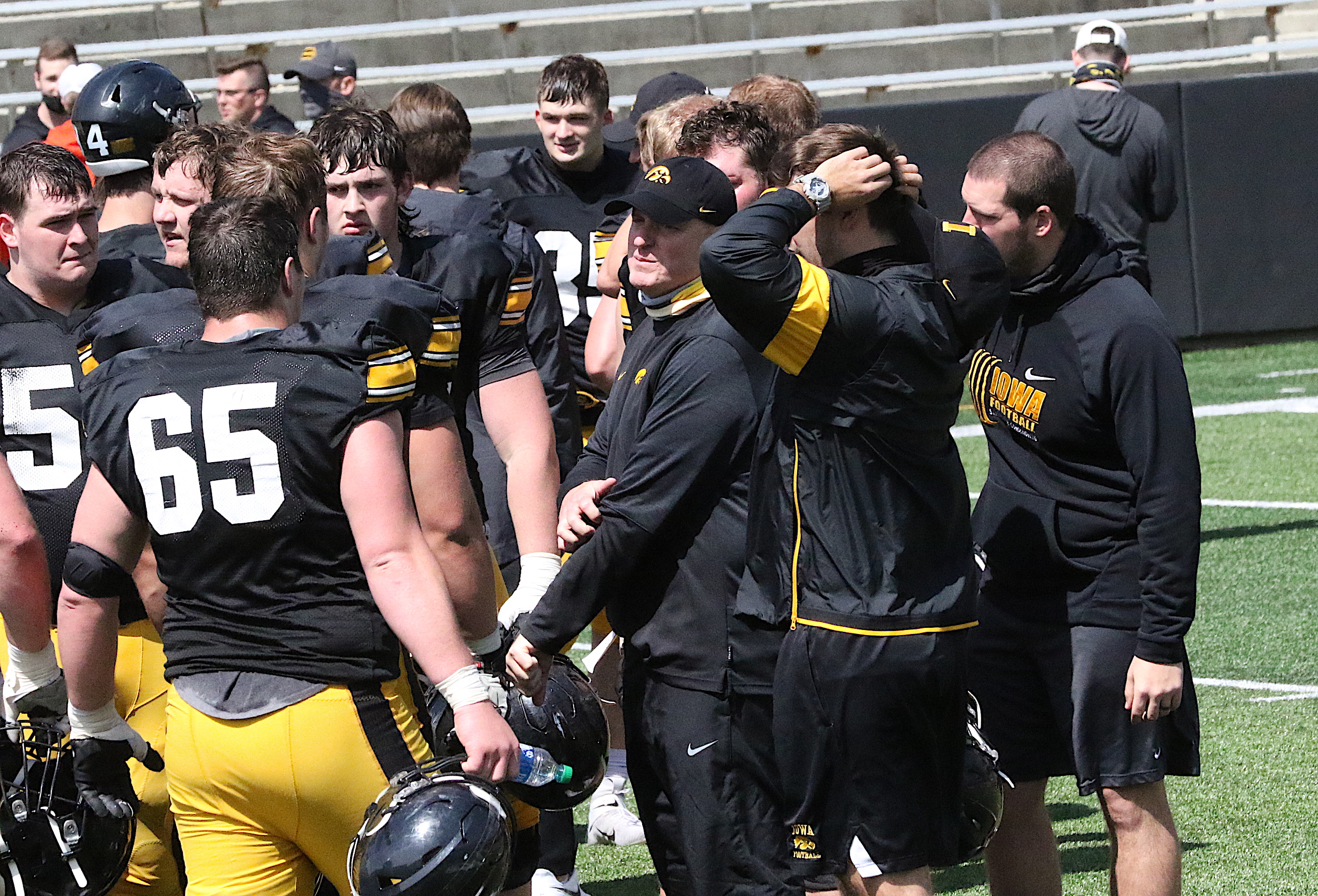One potential flaw with NCAA’s 2021 Covid-19 guidelines and protocol
By Pat Harty
IOWA CITY, Iowa – One month from today, the Iowa football team will face Indiana in its much-anticipated 2021 season opener at Kinnick Stadium.
And while the circumstances with the Covid-19 global pandemic are better than a year ago, the struggle is far from over as the highly contagious Delta variant continues to spread throughout the nation.
The Covid-19 vaccine has had a major impact, but with nearly half of the nation still not fully vaccinated, safety precautions still have to be taken.
The NCAA on Wednesday released its safety recommendations for the upcoming fall sports season and it recommends each school implement its own Covid-19 prevention and management strategies in conjunction with federal, state and local public health guidance.
Its medical teams also have established guidance for testing, quarantine and isolation for both vaccinated and unvaccinated Tier 1 individuals, which include, student-athletes, coaches and staff members.
During the season, those who are vaccinated won’t be subjected to regular testing unless they exhibit symptoms or have been in close contact with someone who tested positive.
Unvaccinated individuals could be tested as many as three times per week, and are expected to wear a mask and practice social distancing “universally.”
Those who are vaccinated are only recommended to wear masks in indoor settings and during team travel.
Most of these guidelines make sense and should help limit the spread of the virus, but there could be a potential problem, or a weakness, with not testing those who are vaccinated because medical experts now widely believe that those who are vaccinated still could be infected with the virus, and cause it to spread, even without showing symptoms.
And since college student-athletes are young and in good shape physically, it’s reasonable to think that someone who has been vaccinated and not tested on a regular basis still could have the virus without showing any symptoms.
Iowa coach Kirk Ferentz said last month at Big Ten Media Day that not quite 70 percent of his players have been fully vaccinated.
If that percentage doesn’t change, nearly one-third of the Iowa players will be tested on a regular basis and have to wear masks and practice social distancing universally.
But the nearly 70 percent of the Iowa players who have been vaccinated won’t be tested unless they show symptoms, or have a documented close contact with Covid-19.
But again, what if a vaccinated player doesn’t show any symptoms, and is unaware about having had any close contact with Covid-19?
Some of the vaccinated players still could have the virus and spread it without even knowing, and that’s a recipe for disaster because a lot can change over the next month as the coronavirus continues to spread and mutate, and because players are at risk of being withheld from games, even without showing symptoms.
This flaw also gives the anti-vaxxers a talking point because they could say it’s letting those who have been vaccinated still put others at risk., while the unvaccinated would be closely monitored and evaluated on a regular basis, erasing much of the uncertainty.
In a perfect world, all the players, coaches and staff members would be vaccinated, making it hard for the virus to spread.
In this case, however, the world is far from perfect, leaving teams vulnerable.
Commissioners from multiple FBS conferences have said that forfeits are likely if a team cannot field a healthy team this season.
The 2020 season was hampered by multiple cancellations, including Iowa’s two postseason games against Michigan, and against Missouri in the Music City Bowl.
Under the new guidelines, Michigan and Missouri both would have had to forfeit because they were to blame for the games being cancelled due to having Covid outbreaks.
Iowa would’ve finished 8-2 instead of 6-2, but winning the final two games by forfeit still would’ve left an empty feeling.
Sadly, the argument about whether to get vaccinated has turned political, and that is likely not to change.
It’s good that the unvaccinated players will be tested on a regular basis, but one could argue that the vaccinated players will be more dangerous from not being tested.



